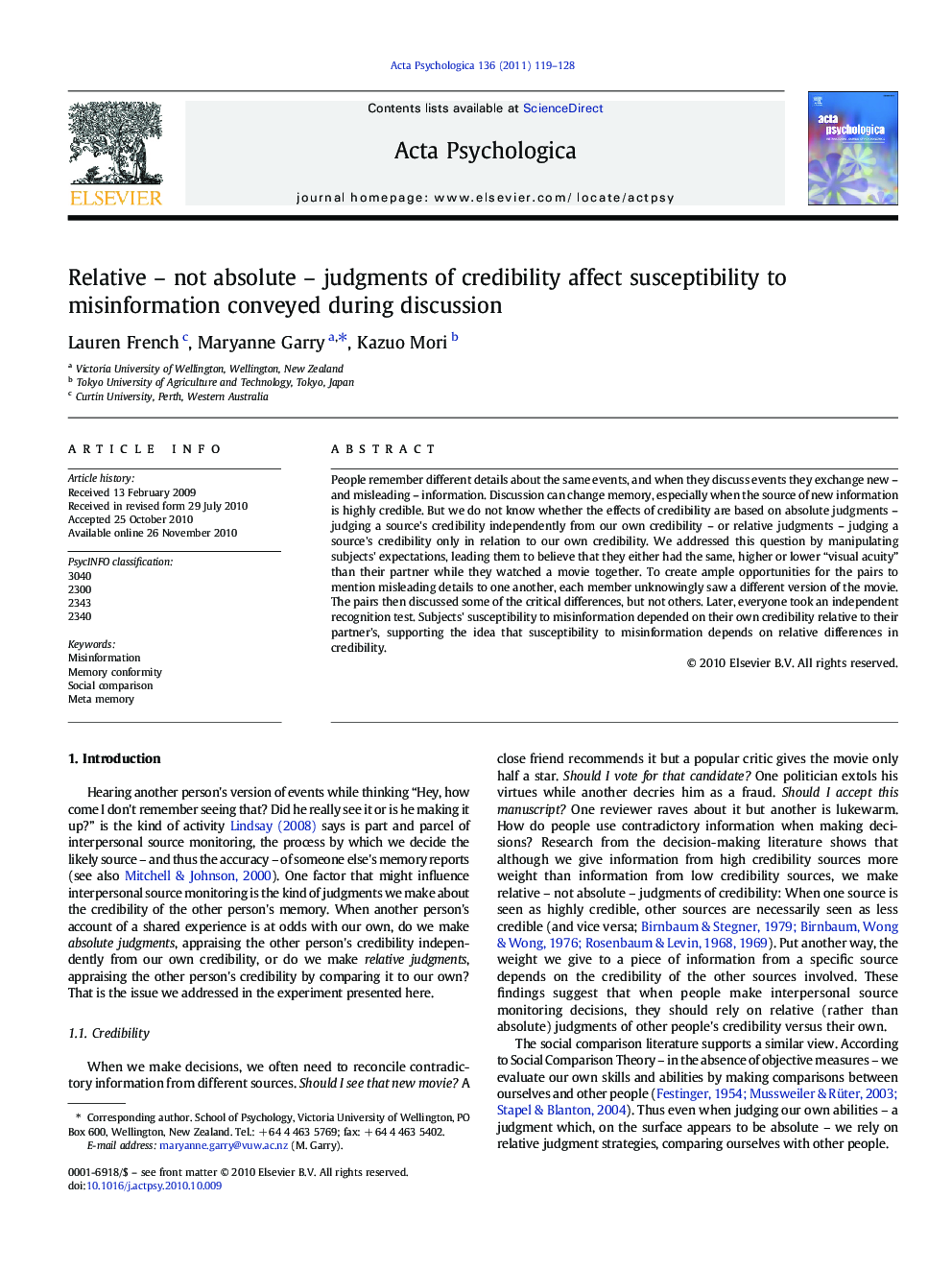| Article ID | Journal | Published Year | Pages | File Type |
|---|---|---|---|---|
| 920311 | Acta Psychologica | 2011 | 10 Pages |
People remember different details about the same events, and when they discuss events they exchange new – and misleading – information. Discussion can change memory, especially when the source of new information is highly credible. But we do not know whether the effects of credibility are based on absolute judgments – judging a source's credibility independently from our own credibility – or relative judgments – judging a source's credibility only in relation to our own credibility. We addressed this question by manipulating subjects' expectations, leading them to believe that they either had the same, higher or lower “visual acuity” than their partner while they watched a movie together. To create ample opportunities for the pairs to mention misleading details to one another, each member unknowingly saw a different version of the movie. The pairs then discussed some of the critical differences, but not others. Later, everyone took an independent recognition test. Subjects' susceptibility to misinformation depended on their own credibility relative to their partner's, supporting the idea that susceptibility to misinformation depends on relative differences in credibility.
